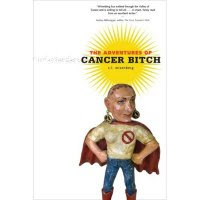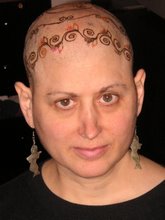
There are two empty houses on our block and one of them has been abandoned for 39 years, according to neighborhood lore. We want to dig out some of the plants and transfer them to our little front yard. I think it would be permissible to take from the very abandoned house. We think those plants with long thin leaves are some kind of lily but we have to wait to make sure. The other house has a boarded-up door, permanent scaffolding and a few nice white irises. We saw a woman working in the yard there last summer. She wasn't friendly. She refuses to sell, a neighbor told us, and this was before the market collapsed.
When I worked at AstroWorld amusement park, some of the time I helped the silhouette cutters. We all wore old-fashioned costumes because we were houses in the Old Towne Main Street or whatever (since razed). One silhouette cutter had panache and style and beauty but her silhouettes didn't look much like the kid (which the model usually was). She would make all kinds of bows and flourishes to gussy-up the profiles. She was such a dynamo that she could convince the parents that yes, this looked exactly like her child, don't you see? Kinda like the Emperor's New Clothes. The paper was folded so that each cutter made two silhouettes at once. If the people didn't buy the second one, we threw it away. (Which frustrated the parents, because they'd argue, Why isn't it free if you're just going to throw it away?) I would sweep up all the paper and occasionally I would take the extra silhouettes home and store them in my high school yearbook for use at a later time, which has not yet arrived.

The other cutters were a couple of art teachers from a small Texas town. They had no panache, just more precision in cutting profiles with special scissors. At dusk they would walk through the park making cuttings (guess it was in their blood) of plants that they liked. I thought it was stealing but you could argue otherwise. I suppose. Their silhouettes were more accurate and without the Little Lord Fauntleroy collars.

Last autumn our friends' son died and the mother is not wearing white or pastels, probably until the anniversary of his death. She writes letters to him. The father is thin and strained. She said to me, Do you have hope? and I said yes, and then I thought of Pandora's box, how after all the evil escaped, she managed to shut the cover before hopelessness was able to escape. Let us ignore for now the misogynist portrayal of Pandora, the first mortal woman, in this myth (curious, willful, girlish). Or maybe she shouldn't. One teller of the story suggests that she may have been a goddess originally, her immortality taken from her with the frequent retelling.
Sunday at Trader Joe's I saw two beautiful shopping lists, both held by women who were in the midst of referring to them. The writing was even and well-shaped, and both lists were the essence of lists, items printed in a column, one object pers line. I collect grocery lists but it is part of my ethic or personality (which is sneaky) not to ask for them. Enough with this Davy Rothbart, who founded FOUND, a magazine of found notes. I started collecting in the early 1990s or before. (And I have proof!! See my essay in Crain's Chicago Business, Sept. 28, 1992, about moving. I wonder if I should throw away or keep files such as the notes from the 1988 interview with Rich Melman; my collection of other people's discarded shopping and to-do lists, found on the streets over the last several years....) My idea was to hand them out in creative writing classes and have students create characters based on them. I've never done that. And someone else bested me: Hillary Carlip, a list collector since the age of 15, dressed up as the the characters she imagined behind each list, and got a book out of it all, A La Cart: The Secret Lives of Grocery Shoppers.
And FOUND is a book and a play off-Broadway and Rothbart brings his finds to This American Life, and Cancer Bitch has three books, but they are published by university presses, and she has no play off- or on Broadway and she used to hang out with Ira Glass (the first person she knew to put tomatoes in a stir fry) but that was many many years ago. Cancer Bitch has not started a national movement. One could say she is too inward, does not spread the wealth, as Rothbart does, with his "operatives" all over the US finding papers and sending them to him to publish. Cancer Bitch learned to use sesame oil from Gish Jen in graduate school, and you've heard of Gish, not to mention Ethan Canin and Dan Woodrell (no links to these people; you can find them yourself), with whom she also went to grad school, and she is feeling tres peevish (and doesn't know how to insert accents over letters) and keeps thinking of the essay Roy Blount, Jr. wrote the year that the MacArthur Foundation started designating (and paying) geniuses. I want a goddamned genius grant, he wrote. MacArthur fellow Robert Penn Warren is a great writer, but after all, what does he need to be designated a genius for? He's got a poem in every goddamned magazine you pick up.
There is some kind of lost web site where people write about objects they've lost. It is somewhere, way out in cyberspace, beyond sites about the TV show, and maybe by writing about the thing and posting a photograph, you can feel a little thump of satisfaction or compensation, the way you do when you wake up from a dream in which you've found that item you lost in the real world, and haven't yet realized that the dream was a dream.
And Cancer Bitch forgot that last week she started making art with her lists, sewing them onto satin, and while she was thus occupied she felt engaged and intense and satisfied, ye olde feeling that's been called many things over the centuries by people we've forgotten, and is now known in our century by the term that Mihaly Csikszentmihaly calls flow.









